How To Use LinkedIn, Particularly If You’re Junior
This post may contain affiliate links and Corporette® may earn commissions for purchases made through links in this post. As an Amazon Associate, I earn from qualifying purchases.
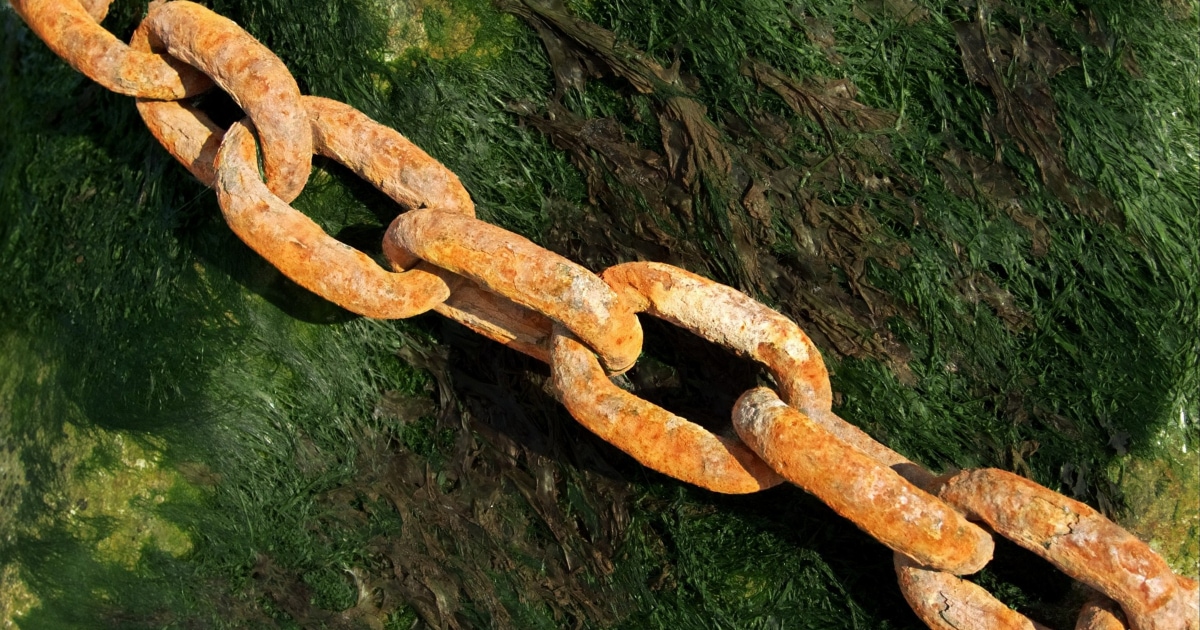
What are the best tips on how to use LinkedIn if you're junior? Has it changed through the past few years?
This came up recently when I linked to an older Corporette post about how to leave an internship — there, I advised interns:
It’s fine to use Facebook or MySpace to connect with the other students you summered with. If you want to, it’s not inappropriate to use LinkedIn to connect, either. However, do not request to become “LinkedIn” with superiors at the company, unless you’d also ask them to recommend you to a future employer — it’s more serious than a casual link, and no one has really had time to assess the other person’s work. Requesting to become linked to an mid-level or senior person you had lunch once or twice with, or wrote a memo for, is really not acceptable.
Do I still agree with this advice? Yes and no. I will say that how I use LinkedIn has changed over the years.
Many years ago, I remember approving a request from a casual friend I'd known in college. We were never close, I'd never worked with her on a school project, and I hadn't seen her or talked to her in nearly 10 years. What, I worried, did our connection mean? If she had turned into a poor worker, would that reflect on me? And so from that point on I chose not to approve anyone unless I could vouch for their work.
{related: how to get the most out of your LinkedIn profile}
Over the years, though, how I use LinkedIn has changed. Now, I use it more as a collection of people who I would like to know what's going on in my professional life, as well as who I'd like to keep tabs on.
After all, if the lousy economy and job market of late has taught us anything, it's that connections matter — having someone personally pass along your resume can hugely affect how it's viewed and where you fall in the list of contenders.
{related: how to network if you're junior}
And, I'm now of the opinion that it's best to network and add friends on LinkedIn when you don't need anything — in other words, don't wait until you're laid off or fired to ask people to connect with you.
For my $.02, LinkedIn is a way to recognize an already-present relationship, not a way to begin a friendship.
(Pictured: Connections, originally uploaded to Flickr by carlaarena.)
That said, there's still an etiquette involved — which brings us back to why I still agree, in part, with my advice to interns so long ago. I still believe LinkedIn is a way to recognize an already-present relationship, not a way to begin a friendship.
How to Use LinkedIn If You're Junior
When I request a higher-up to connect with me on LinkedIn, I ask myself the following — how well do I know them? The questioning may follow the lines of “If I ran into them at a crowded restaurant while we were both waiting for tables, would we be happy to see each other and chat for a bit?” More finely parsed: Do they know my name as well as my face? Have I had at least three conversations with that person? Will they remember who I am if I haven't seen them for six months?
Part of building a good list of connections, though, is protecting that list of connections, which is important to think about when someone more junior asks to connect — after all, connections can ask to be introduced to each other, may be able to see more of someone else's profile than they would otherwise, and a job seeker can always note something like “we're both connected to ___ on LinkedIn” in a cover letter or say it at an industry event.
(Tip: Do NOT do this unless you know that connection WILL vouch for you.) But for the most part, if I know you, I will go ahead and approve the connection — unless I have serious doubts about your character.
For example: I have another old casual friend who I haven't talked to since 1998 or so. According to the rumor mill, this person has been primarily working as an actor — in the pornography industry. We recently connected on another social networking site, and I noticed that the person's profile and use of the site is a bit bizarre. Not inappropriate, just… bizarre. So: I've been sitting on the LinkedIn request from the same person (which seems kinder than outright denying the connection).
That said, lately I have been getting requests from people who I have no idea who they are, or who I barely know who they are — e.g., I just met him or her briefly at a conference. In those cases, a follow-up email would have been better than a LinkedIn request, I think.
Readers, what are your thoughts on how to use LinkedIn, particularly if you're junior? How carefully to you “guard” your list of connections? How do you decide when to request a connection, or when to approve a connection?
Some must-read business books for women — update coming soon!
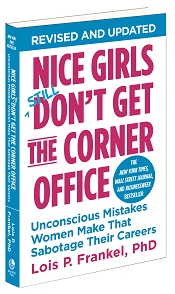
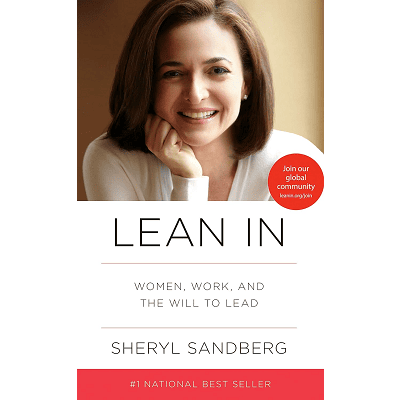
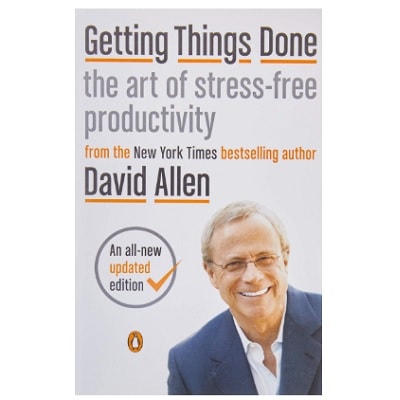
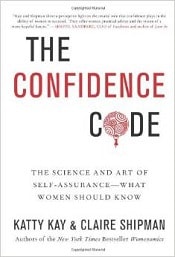
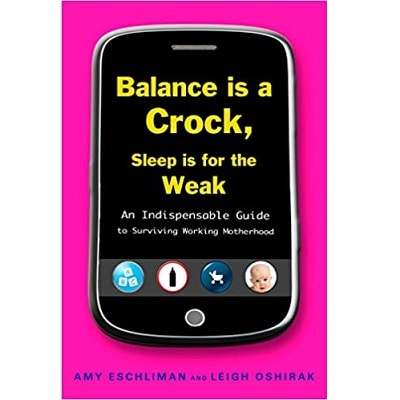

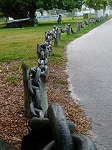
I usually add any professional/education connection to my linkedin, and I don’t see it at all as a reflection of my recommendation of that person or their work, just that I know them. I think, in general, the site is set up to facilitate that understanding because I have made recommendations on linkedin of people whose work I do believe in, and in order to make an introduction to someone else, the person still has to come to me directly and I can decide from there what I want to do with it.
In general, I think of linkedin as a way to keep track of all my professional/school related contacts in case of a rainy day when I’ll need them. It’s very difficult for me to keep up with everyone all the time, but if I have access to their linkedin profile, should I need to contact them I can read it and have an instant update as to what they are up to (making my email asking for a favor a lot easier to write).
Also, linkedin gives me an at a glance view of where everyone I know works or has worked, in case I do want an introduction but don’t know where to begin.
Ok, my mind is fixated on this: Porn industry LinkedIn friend? Kat? Really?! LOL.
i’m 24 and grew up with facebook, and i (and, i am relatively certain, my generation) see linked in as a kind of sanitized facebook. aka you can “friend” people on it that you would not friend on Facebook because you wouldnt want them to see your personal life, ie a boss or coworker. i rarely give any thought to being friended by friends of my parents, coworkers, long-lost sorority sisters, etc. i think linked in is most useful for stalking interviewers while looking for a job. aka, i know jane doe will be interviewing me, so i’ll look up all of her previous employers to get a better understanding of how to connect with her at the interview.
i’m glad i saw this post to better understand how people who have been in the workplace longer use linked in – but wanted to add my perspective. it seems like a new hire and a more experienced worker could experience some social gaffes trying to connect through it…social networking is complicated!
I agree with this, but I’m also only 26… maybe it’s an age thing?
I also agree … but I’m 39. So not sure about the age thing.
Agreed. Hence why I deleted my account.
Or could experience some social gaffes with the repeated failure to capitalize.
Oy – I’m the normal JJ that comments under my alias and that comment above isn’t me. So snarky…
I think you have it backwards. In about five years, your generation’s values are going to be driving the bus in regards to social networking, not the older generation’s values. The Boomers are getting phased out of the workforce (by choice or by force) and there are a pitiful number of GenXers moving up to replace them; GenX is the smallest generation of the last 4. The GenY/Millennials that are coming into the workforce are going to be the ones reshaping how basically everything is done. I am GenX myself and can’t wait. I think people your age, with your lifelong exposure to the Internet and social media are going to bring some really welcome changes to the workforce. Don’t worry too much about making “social gaffes” on LinkedIn; follow your instinct and you should be fine. In about 3-5 years people higher-up than you will be asking you for advice about how to use social networking. :)
This
I use LinkedIn like my Outlook Contacts. Anyone whose information I would enter into my Contacts is someone I’ll link to on LinkedIn. I have hundreds of LinkedIn connections, but fewer than 100 Facebook connections. In fact, I get Facebook requests from people I have primarily professional relationships with, and I redirect them to LinkedIn. (I don’t need people I only know professionally seeing the crazy sh1t my family posts on Facebook.)
So I guess my take on LinkedIn is much more casual than yours, Kat. I don’t think having a connection means you endorse their work. That’s what the recommendations section is for (which is a section I don’t really use.)
I also recommend you think carefully about what you check for your ‘interests’ on LinkedIn. I have a subordinate who has “job opportunities” checked on his LinkedIn profile, and when I saw that, it gave me pause.
Me too. I use LinkedIn to network, not to endorse.
that’s interesting… i have job opportunities listed on my profile, but i’m not looking for a new job. i just haven’t bothered to change it since i got my current job, and i figure, if ever i am looking for a new job, i won’t have to change it and draw attention to the fact…
I have a friend who constantly sends me “recommendation” requests on LinkedIn (I have received maybe 5 now). The problem is, we have worked together, and I would not recommend her work. Luckily, she hasn’t mentioned these requests when I’ve seen her….but I am wondering what I should say if she asks? My old job had a policy against giving any sort of recommendation because it reflected on the company. Maybe I could say something along those lines….thoughts?
I don’t use the recommendations section and have declined to give any recommendations. So either the approach of flat-out declining since you don’t use it, or saying the company’s policy prohibits it, would not bother me.
It is worth checking whether she has sent five requests or one request which linkedin has reminded you about four times. I felt rather harassed by a linked in request to connect which I received until i realised that it was just being reminded to me again and again….not sure if this applies in your scenario, but just a thought.
But the point of LinkedIn is to make professional connections, to network. I just approved a connection with someone through a mutual friend. Her organization works with the very people I am trying to represent in my law practice. Now through LinkenIn we have a connection so that I can get more referrals and send people to her agency.
If I followed the rules of only approving requests with those with whom I have a pre-existing relatinship I would never have made the connection.
I thought so too, but between the groups that you join just so you can have thousands of (worthless) “contacts” and the daily updates like Twitter (no, I don’t care what anyone had for dinner), and friend requests like Facebook, I no longer see this as a via networking or professional tool.
Yikes.
I would really caution everyone to avoid this attitude towards social networking. Social connections forged through online networking is the way business is going to be done in the future, period. If someone chooses not to use it, that’s fine, but the rest of the world is moving on and there are more and more people every day who ARE using it as a valid networking and professional tool. In fact, in about two or three years, anyone who doesn’t know how to use social networking is going to be at a significant disadvantage in getting employment – especially older, more expensive professionals who are going to need to prove relevancy to retain jobs. We all saw what happened in the Great Recession – a hugely disproportionate number of people over 50 lost their jobs and a lot of those people haven’t been able to get new ones. I imagine that in a short time, “I don’t use social networking, I don’t understand it and I don’t think it’s valuable” is going to be a career-killer, and I am not exaggerating. You would have to be pretty high up in a company to not have that statement make you vulnerable.
For anyone who wants more info, these two books pretty much say it all:
http://www.amazon.com/Thank-You-Economy-Gary-Vaynerchuk/dp/0061914185/
http://www.amazon.com/Social-Media-Work-Organizational-Performance/dp/0470405430/ref=sr_1_1?s=books&ie=UTF8&qid=1300744764&sr=1-1
I am not affiliated with either author, just a fan of the thinking.
I also started out being very careful, and only adding people I felt I’d be able to vouch for. I’ve definitely loosened that up a little, though I do try to maintain a rough divide of professional contact = LinkedIn, personal contact = Facebook. There is some crossover (mostly good friends and close colleagues/former colleagues who are connected to me on both sites) but that’s my general principle, mostly applied to people I only know from non-work-related internet discussion boards and such (who also are on a list with a more restricted view on Facebook). If I’ve never met them in person and all I know about them is their opinions on this year’s Red Sox bullpen, then I’m not comfortable having them in my LinkedIn network (though I might want to be their Facebook friend if they post lots of witty or interesting updates).
I was just wondering about whether it’s appropriate to approach clients on linkedin. I am a relatively new attorney but I have considerable client contact in my day-to-day job. My question is whether it’s OK to use linkedin to connect with individuals who work for the organizations I have represented in the past.
If you actually know and have worked with someone, I think it’s fine or even flattering to send them a LinkedIn request.
If you don’t know someone but are looking to cultivate them as a client, you can send them an email through LinkedIn without actually having to add them as a connection. I’m not quite sure how this works, but I regularly receive resumes and job applicant inquires through LinkedIn from people I’m not “connected to.” I think the only requirement is that the person be in your network, and of course adding connections will expand your network greatly.
My clients and I always LinkedIn one another. Even people that I”m just doing proposals for – they will link me in and vice versa. LinkedIn is just one big phone book, as far as I’m concerned. I’ve got people from all sectors of my life (personal, professional, etc.) and it wouldn’t occur to me for one minute that by linking in someone, I was “endorsing” their capabilities. I think Kat’s advice is dated at this point.
Ah, LinkedIn is a topic I end up discussing on an almost daily basis! I’m 25, so I’ll agree with the other mid-20s ladies that I think our generation is much more lax about connecting. I’m working on an MBA, and as soon as I starting meeting classmates, we connected via LinkedIn. We didn’t really exchange contact info, we just connected on LinkedIn to find that information. I also used LinkedIn to do an informational interview with one of the companies on my “dream job” list, since she’d worked with a former classmate of mine. I was able to do all the initial contact via LinkedIn, even though I hadn’t talked to the classmate in about a year.
I’m urging my sales team to fully utilize LinkedIn as well, and the few who have really jumped on board have been able to make VALUABLE connections with people they wouldn’t otherwise be able to talk to. One of our sales reps just set up a meeting with a new customer, completely via LinkedIn! To Jessica, I would say you can certainly use LinkedIn to connect with individuals you’ve worked with previously!
Clearly, I’m a huge fan… and I’ve seen the great results it can facilitate in terms of career advancement.
Yes, I’ll automatically connect with people I went to school with– I think my line of logic is that I spent 3 years of law school with these people, I’d trust most of them with any legal issues I had and I believe they are all pretty competent.
If it is another lawyer I didn’t go to law school with but interacted with in a positive way, I’d probably automatically add them too.
Friends from high school//college//other places I’ll add if they are doing interesting things professionally and I feel like they are good people to have in my network (either above or below me).
I really agree with it being a sanitized version of fb– not that I put anything I wouldn’t show my mom on fb, but I wouldn’t necessarily do the same sort of social sharing that I do on linked in as I do on fb.
anyone have an ann taylor coupon for sale items?
How do people use linkedin generally? I’ve been to several career/networking panels where more senior people always sing the praises of linkedin for being so great for networking or business generation, but I’m clueless as to what they’re actually doing. I guess I’m just used to facebook, but I don’t really understand how linkedin works beyond just connecting to people. I’ll occasionally read posts in my school’s alumni group and browse for jobs, but I don’t really see it as a place where there’s a whole lot of interaction. Maybe this is because most of the people I’m connected to on linkedin I’m also facebook friends with, but I just don’t get it.
That’s been my experience, too. I went in a year ago, connected with everyone I could think of, and . . (other than the occassional update) . . now what?
Join groups, preferably a variety that captures your interests like your alum organization, industry groups, conference attendee groups, or other topics important to you. Contribute to discussions! Answer people’s questions! Recommend good articles or books! There are so many way to participate on LinkedIn that are beyond connecting to people and responding to invitations. It would really help if you take some time to just explore the site and see what it offers and how others are using it – not all the features will be relevant to you but some will be.
I use Linkedin for professional networking – there are only a few people there (eg my husband, family) who are also on my facebook friends list. I let requests sit in the inbox if I don’t want to answer them (eg from recruiters).
Threadjack – does anyone have suggestions for someone who is unemployed despite of his/her graduate education? This person has been unable to find a FT job as a lawyer since graduating in 2009 (!!). S/he has been working as a “volunteer” attorney at a govt agency in the interim – almost FT but unpaid. Several interviews but no jobs. Would you think that the person needs interviewing help, or a headhunter working on his/her behalf, or what?
Urgh, “despite of”, ignore the “of.”
This is not uncommon at all. I went to a top 25 school and many of my classmates are still working in temporary, semi-legal, volunteer, or part-time positions because there are so few entry-level positions available. Those that are available still seem to go to people who already have at least a year or more of full-time experience post-bar. My department has a 2009 grad from the local school working as a temporary assistant. At least your friend is getting some experience s/he can use for job interviews.
A candidate I interviewed for a summer internship position just requested to linked on LinkedIn. This definitely gave me pause, as I’d ordinarily link with anyone who requested to but I feel that in this kind of a situation, it’s inappropriate.
That is weird. On the other hand, I’ve heard of some (law) schools telling students to connect on LinkedIn with anyone they meet at networking events, so this person might be doing this on the advice of their school.
I’ve been approached by two candidates I’ve interviewed — one whom was not offered the job and one of whom withdrew her application. I’m happy to connect to former and current clerks/ interns, but that struck me as a bit odd.
I agree that this is weird, but recently, I felt myself wanting to link to one of my interviewers at a firm where I was given an offer to be in their summer associate class. I ended up choosing another firm, but I really liked this interviewer, and I did speak with her multiple times during the process. Would this be completely weird?
I think it would be ok in that circumstance, especially since you developed a connection. You’ve spoken many times and there was a culmination in your relationship (if that makes any sense).
I’m always hesitant when I get are request from someone on linkedin. I often find that they are people that I met briefly while they were trying to sell me somethine, and more often that not, it was not something our institution was interested in, had already developed on our own, or was just inappropriate. To get a Linkedin request after those meetings was annoying, and made me go out of my way to avoid that person/company in the future.
I am in the camp of more conservative LinkedIn use – something similar to what Kat is doing. I connect with friends (even if they are from completely different industries and backgrounds), school classmates and people that I have worked with somewhat extensively. I don’t consider whether I am able to vouch for the person I am connecting with, but more along the lines “if person x calls and asks me for a favor, would I be comfortable doing it”.
Some LinkedIn requests that made my eyebrows lift recently have been requests from sales people with whom I had spoken once and decided not to work with their company.
I also tend to go through my connections list and delete connections that I no longer see as valuable.
I stopped valuing LinkedIn when it became Facebook light. And I was only on Facebook for a few months but left because it was too unprofessional.
(Yes, I know it is supposed to be personal but I need to keep my family business out of my professional business as much as possible, not to mention the hacks and malware Facebook is fertile breeding ground for).
And there in lies the rub: When I felt LinkedIn was a professional networking tool, I valued it. I went to seminars on how to work it and found it very difficult to get any real results from. Recruiters from the weirdest places were contacting me and LinkedIn was sending me updates from jobs that pretty much everyone I knew had moved on from.
There is a stigma about social networking in some very conservative, professional circles. By their very design, they are still too personal to really be considered a professional tool. I am from the old school thought on this: work life balance also means a healthy amount of separation of personal life from professional work.
This is all fine, but I hope you understand that basically the entire workforce under 25 does not feel that way, and once they move into the workforce and may become your clients, direct reports, colleagues, etc., the LACK of your social networking presence is going to be weirder to them than their own participation in it.
“Yes, I know it is supposed to be personal but I need to keep my family business out of my professional business as much as possible, not to mention the hacks and malware Facebook is fertile breeding ground for).”
Um…you realize you don’t have to connect to anyone on either Facebook or LinkedIn you don’t want to. My Facebook connection is completely locked down and totally private. I have under a hundred connections and I routinely “weed out” people I don’t want to be connected to any more, if they aren’t really using the site or we don’t have any interaction for a year or so. My LinkedIn is 100% about work and my Facebook is almost 100% about my personal life, with very little overlap. Plus, the “hacks and malware” thing is not nearly as threatening as you’re making it out to be. Given the number of people globally who are using Facebook on a daily basis, the number of problems is pretty small.
I’m 28 and have been online since 1995, and I just want to offer a slightly different perspective. I agree that FB and LinkedIn are valuable tools for connecting with my generation, but there are social/professional circles where having accounts on any online profile service is viewed negatively, and they’re not all conservative. Yes, to some people it can imply an inappropriate level of being available (for new jobs, relationships, etc.), but I’ve met older feminists who think it reinforces old ideas about a woman’s quality of work being less important than her social/professional background. Your feelings about FB/LinkedIn might vary based on how you feel about social class and status markers being widely available to readers. In addition, while it is easy to avoid hacks/malware, hanging out online with people whose accounts are continually getting cracked due to app addiction can look unprofessional for entirely different reasons.
I’m not disputing that our generation is pretty passionate about online networking. I just wanted to share some thoughts about reasons I’ve heard from more mature professional women that might sometimes lie under the “oh, it’s a stigma” surface.
There is some woman who keeps sending messages for me to allow her to be linked to me.
I do not know this woman, nor am I even remotely aware of the firm where she works.
I have been ignoring these linked-in requests. Is there a way I can block this person from trying to link to me? I wonder if she is confusing me with someone else. I don’t think so.
I am afraid if I let her link to me, she will get a lot of other people to link to her and she will become a real nuisance. Any one else have this problem?
I guess I’ll turn this around: does the person look sketchy/shady? Does it look like a spam account? Is she selling Amway or timeshares or something? If she is just trying to connect to you, and she is in your industry, why wouldn’t you want to connect? You don’t have to “introduce” her to any one of your contacts if you don’t have to.
I find linked in an easy way to keep track of people, especially if I ever left my job for some reason, I wouldn’t have to switch my contact info to them at what would be a hectic time. I am more relaxed than Kat; my standard is we have to have met profesionnaly, + I liked you and you aren’t aggresively pitching stuff to me + you aren’t connected to people I’m trying to avoid. I’ve been rejecting tons lately- my position at a company makes it so people want to talk to me and want things, so I am getting them from around the world from consultants, academics, entrepreneurs, etc. it’s a bit annoying. I may tinker with the settings to see if I can avoid those, but that would probably block people I’d actually want to hear from. It’s easier than typing up a business card in my view- agree with the person who said it’s like a phone book, and who said they use it to stalk interviewers (that is really helpful actually!).
I used to hate that they wouldn’t let you delete messages, but think that’s changed. Also I like that when I reject an invite, it lets me select “I do not know this person.” I hope the message gets sent back to them.
A tip for those job searching to not do- I got a really irritating one recently. It was clearly a young woman job searching in my field in my city. She wrote only “I’d like to link to you as a fellow professional in xyz field.” Um, no, maybe in the past- maybe- but right now you aren’t working in the field and don’t have anything to exchange with me etc. I am extremely busy (on a 10 day international business trip now at the moment, will be up late working due to this dalliance:) and honestly just don’t have time for random coffee dates. But I MIGHT have considered it, if her approach had been “hi there- I notice you work at X doing XYZ. That sounds fascinating and something I’m interested in, and would love to meet you to learn more about it, and how you got into that career path. I am a (fill in blanks here- education, experience, current goal/what seeking), seeking work in the field and interested in getting to know the community practicing XYZ here. I would really appreciate even a few moments of your time on the phone etc.”
Instead, I saw the random invite, had to click on her profile to find out who it was, saw the lack of employment/recent experience, and was so annoyed by the total lack of effort in trying to capitalize on my contacts and reputation that I would now never reach out to this person. Perhaps she was not so interested in me but more my global, high-level contacts list… but failing to explain yourself, at all, is a surefire way to do more harm than good in Linked In.
Yeah, I don’t use LinkedIn the way Kat is describing at all, although it’s good to know there are people out there who think it is “weird” when people they don’t know well send them a connection request.
I have connections to people across the country I have never met or even seen in person. Usually, someone sees something I’ve posted in a group and will ask to connect to me. I’ve actually gotten some very decent business leads this way. I think of LinkedIn as being the most impersonal social networking sites of all – you’re not sharing puppy pictures or drunken- night-out stories like on Facebook, and you’re not sharing random miscellaneous thoughts like on Twitter (although you can connect your Twitter and LinkedIn pages). For me, LinkedIn is about business, period. I routinely get connection requests from people I barely or don’t know, and if we have mutual groups or connections, I accept. I figure, why not? What the heck? If something comes from it, great. If not, I am at least connected to them and they don’t have to hear all my updates about my son and what I’m making for dinner. Since LinkedIn doesn’t let you email people you’re not connected to by either connection or a shared group, I’d rather be connected and not need it, than need the connection later and not have it.
I do not think, at all, that connecting to someone on LinkedIn is “endorsing” them in any way. You’re just connected to them, I’m connected to over 200 people and I have friends who are connected to over 500. I guess if you look at it as the “you’re judged by the company you keep” thing. I would be concerned about the recommendations you display, though – make sure they are from awesome, top-quality people. But connections? Get a lot of them. It can only help you.
I don’t accept requests or request connections with people I don’t know, but I also don’t keep a divide between people I connect with on facebook and people I connect with on LinkedIn (meaning I will connect on LinkedIn with my facebook friends, but not necessarily vice versa). I figure that you never know where a valuable connection might come from, whether it’s a potential client or a potential career move. Many of my friends are in other fields/jobs/geographic areas, but as long as they’re also connecting to a broad range of people, someone they know may be relevant to my career.
Particularly relevant to today’s conversation:
http://hken.ibtimes.com/articles/123434/20110317/4-essentials-for-reaching-out-to-strangers-on-linkedin.htm
I have had interviews at major corporations just because their recruiter found me on linkedin. Though none of these have turned into a job yet, this is more effective than my submitting resume to the same company on their careers website. In the latter case, I hardly ever get interview calls.
If I maintained strict standards about who I added on linkedin, I would be shut out of job opportunities. A friend of mine calls linkedin the new monster.com.
DH is in the IT field and he got his last job (4 years ago) via linked in and now in his current job search has gotten multiple offers (unfortunately not in the right city…) and inquiries based on his account. Maybe it is a tech thing but I agree with the person T – this is the new monster.com.
I’m currently working abroad, but will be applying to companies back in the US in a few months. Right now, I’m working on beefing up my profile (a more professional photo, adding more relevant details, etc) because I assume that if I’m considered for an interview at xyz company, they will attempt to access my linkedin.
Linkedin was also useful to me recently because I connected with someone I met on a week-long business seminar back in ’09. By Kat’s standards, it wouldn’t have been a good idea to connect. But, I found out that he’s in language training for a government job for the same language that I use daily in my current country of residence. So, not exactly professional gain (though you never know), but useful information nonetheless for someone looking to expand a certain skill.
I am the marketing director at a CPA firm… and I LOVE LinkedIn. I encouraged everyone in our firm to set-up a profile… and to spend a few minutes each week making connections in our community. We have a prospect pipeline and I can now go into LinkedIn and type the name of the company and see who at our firm knows someone at the company we want to get…or at least get a connection to a connection that may make an introduction. Very powerful.
I also use the Reading List feature. Hint – not many people use this and it appears in the weekly update emails that your connections see… it makes me stand out. I have had the President of the Chamber comment on a book I am reading… I have people follow-up on a book that I liked.
I send notes to friends that get promoted… I comment on new pictures. LinkedIn can be a powerful business development tool.
FYI – I connect with someone I have met or if they are clients of my firm. I don’t connect with competitors because I don’t want them to raid my client list. :)
I was thinking about the comments on this topic last night (I know! get a life!) and I thought I’d offer the following true story –
Within the last 6 months, a truly big job in my city & in my profession became available. I was contacted for it via LinkedIn. The CEO was a 2nd or 3rd degree connection of mine and when he looked up “profession name” and “city” he got my name, which he sort of recognized, and then he saw my photo and remembered me. We had worked at the same firm 15 years ago and he didn’t know me well at that firm as he was really very senior to me, but he remembered me. He had his recruiter contact me to interview for the job.
As it happened, I wasn’t looking to make a change, but I did end up having coffee with the CEO to talk about it and renew our acquaintance. And now he’s my first degree connection on LinkedIn.
The recruiter for the position was from out of the area and only used LinkedIn to find candidates for the job, despite the existence of profession-specific directories and profession-specific recruiters for my field.
I’m not in high tech, and I’m not Gen Y. I’m 46 years old. The CEO, I would guess, is in his 60s, as is the recruiter.
I understand people having an inital negative reaction to the professional side of social networking, but I guess I’d say get over it. The ship has definitely sailed.
I think saying “I don’t believe in social networking” is kind of today’s version of “All this hype about the internet is overblown” circa 1995, or “Who needs a cell phone?” circa 1990.
I’m young-ish (30) and pretty tech savvy, but I must say, social networking freaks me out so much! I got on facebook back when it was restricted to college campuses but deactivated in 2006 when within a span of a couple of days a friend/colleague posted something inappropriate on my “wall” related to my job and I received a friend request from someone I’d never spoken to.
I know that social networking is the future of business and life in general, but it just creeps me out to no end. I know that if I don’t get back on facebook, I’m going to be one of those weirdos who is behind the times (already am, I guess), but I can’t get over the squick factor of just putting your work/personal life out there for everyone to see. And I’ve got a great life! I just feel like I see people frequently use facebook solely for the purpose of judging others in various ways (pitying, making fun of, being jealous of, etc.) and I don’t want that negative energy directed at me.
And yes, I know about privacy settings. And people tell me that I can limit my “friends” to just the people who I actually care about, but those people already know what’s happening in my life.
I’ve vacillated on this issue for years now, and probably will continue to for many more years to come!
How the invitation to “link” is perceived may very well depend on your field. At a panel last month on interview skills, two professionals — one a journalist, one an advertising executive — offered very different perspectives. The journalist stated in certain terms, don’t invite me to link if you don’t know me. The ad exec indicated she likes to see job candidates show their social media savvy and outgoing nature by reaching out on LinkedIn.
GREAT TOPIC!
I use facebook for social only and LinkedIn for work (though i will accept a non-work friend on LinkedIn).
At my last firm there was a lot of work friending on facebook, not so at new, firm, which I prefer.
For Linkedin – I am trying to get into the habit of adding people as follow up to meeting them professionally (unless I have an aversion to them or something). I usually adapt the standardised invitation blurb to refer to when/where we met.
I also find that younger people (but not exclusively) tend to add me after a meeting more often than those over 40.
Just FWIW, I think it is generally positive and I don’t think there is any risk – if you accept some wackjob, you just unlink from them!
takes only matter of moments.and you have the opportunity being inventive. if you’d like to currently have wide lace across the is bordered by, stuff the actual ribbons
I’m 52, and I would never assume anything about you based on your connections. I agree with the phone book analogy. I’m much less picky about my LI connections than my FB ones, mostly because I look at LinkedIn as a sort of giant directory of people I have met in various parts of my life. I’m not so good at remembering details, so I find it very useful to look up a contact and see which former client employed him, what exactly was her position at the company we both worked at 15 years ago, where is my former classmate now, etc.
We would like to say that without definitive practice each and every learner will fail to uncover a wide variety of sources on a suggested theme at university. Those free papers done in accordance to absolutely correct educational standards and theories. That means a lot as it gathers consistent materials and precise data for anyone.